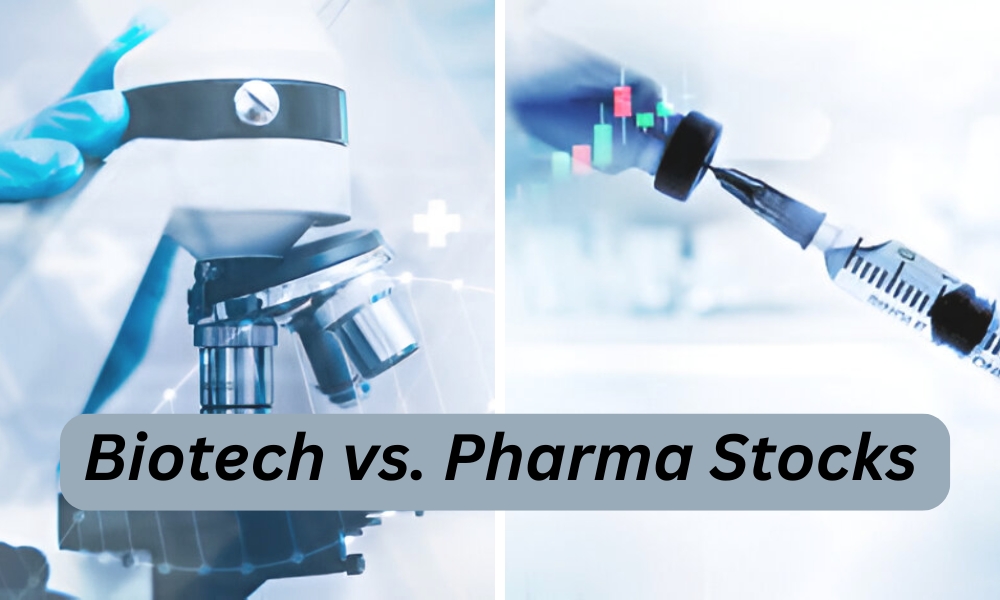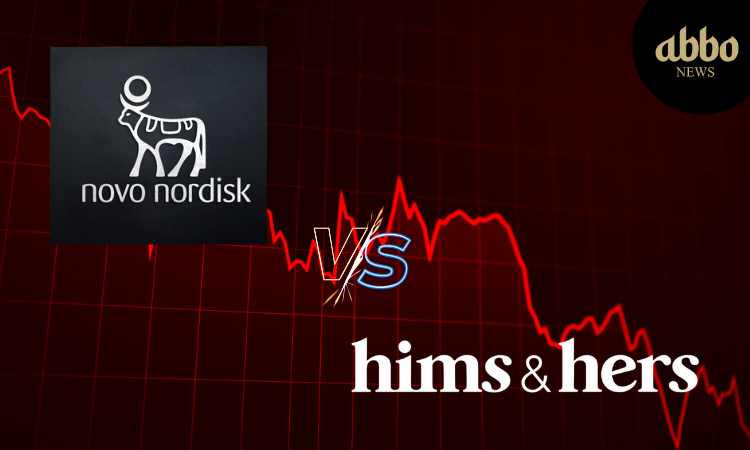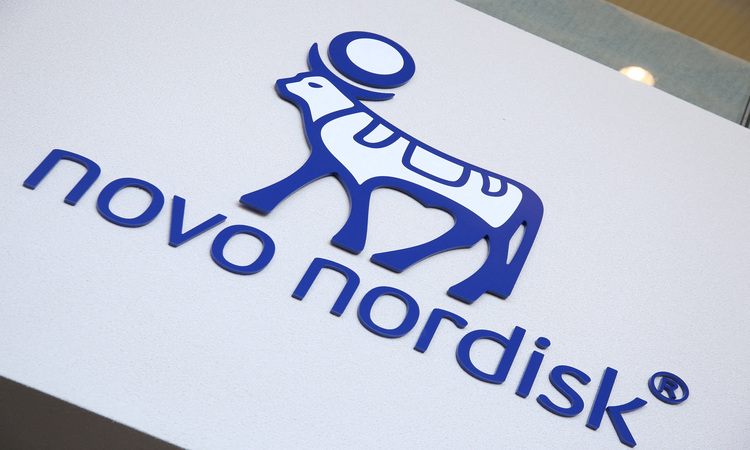Investing in the healthcare sector can be lucrative and complex, particularly in biotechnology (biotech) and pharmaceuticals (pharma). Both sectors offer distinct opportunities and risks, making it essential for investors to understand their differences and potential before deciding.
In this blog, we will explore biotech vs. pharma and the key differences between biotech stocks and pharma stocks to help you decide which might better suit your investment strategy.
Biotech vs Pharma: An Overview
While both biotechnology and pharmaceutical companies contribute to drug development, their approaches differ significantly. Biotechnology utilizes living organisms to create medical products, whereas pharmaceutical companies primarily rely on chemical synthesis. The emergence of biopharma, which combines these methods, underscores the evolving landscape of drug discovery and development.
Biotechnology
Biotechnology is a rapidly evolving field that leverages biological organisms, systems, and processes to address challenges and develop innovative solutions. With a rich history dating back to ancient agricultural practices, biotechnology today encompasses various industries, from pharmaceuticals and agriculture to environmental science and materials engineering.
Biotechnology has significantly advanced healthcare, with products like AbbVie’s Humira, Roche’s Rituxan, and Amgen/Pfizer’s Enbrel revolutionizing treatment options for various diseases.
These medications have substantially improved patient outcomes and contributed to the rapid growth of the biotech industry, which is projected to reach $3,879,508.3 million by 2030, growing at a CAGR of 14% between 2024 and 2030.
-
Examples of Biotechnology Companies
Modern biotechnology companies typically specialize in either medical or agricultural applications. In the medical sector, they develop biopharmaceuticals such as therapeutic proteins, vaccines, and gene therapies to treat diseases and disorders.
In agriculture, genetically modified organisms (GMOs) are created to enhance crop yields, improve nutritional content, and increase resistance to pests and environmental stressors.
Some well-known biotech companies are:
- Novo Nordisk A/S (NVO)
- Moderna Inc. (MRNA)
- BioNTech SE (BNTX)
- Regeneron Pharmaceuticals Inc. (REGN)
- Vertex Pharmaceuticals Inc. (VRTX)
-
Best-Performing Biotech Stocks
A comprehensive analysis of biotech stocks should incorporate both fundamental and technical metrics. Based on current market trends, these are top performing biotech stocks trading above $10 per share are considered promising investment opportunities within the biotechnology sector:
- Halozyme Therapeutics (HALO)
- United Therapeutics (UTHR)
- Ligand Pharmaceuticals (LGND)
- ADMA Biologics (ADMA)
- Catalyst Pharmaceuticals (CPRX)
Pharmaceuticals
Pharmaceutical companies research, develop, and commercialize synthetically derived medical treatments. While established players dominate the industry, it continues to evolve with the emergence of new companies.
-
Examples of Pharma Companies
Founded in 1899, Bayer AG is a prominent example of a pharmaceutical company with a long-standing history. As of 2023, Johnson & Johnson held the top position in the global pharmaceutical market, followed by Eli Lilly and Novo Nordisk.
Like the biotech sector, the pharmaceutical industry is witnessing disruption from innovative startups. These companies frequently partner with larger firms to accelerate product development, gain access to broader markets, and leverage established distribution channels.
Pharmaceutical product development involves rigorous research and development, culminating in regulatory approval from the Food and Drug Administration (FDA).
The top 5 U.S. pharmaceutical companies by market capitalization as of March 31, 2023, are:
- Johnson & Johnson
- Eli Lilly and Company
- AbbVie Inc
- Merck & Co. Inc
- Pfizer Inc
At the same time, the top 10 U.S. pharmaceutical companies collectively had a total market capitalization of $2,060,644 million.
Johnson & Johnson led the pack with a market cap of $402,750 million, followed by Eli Lilly and Company at $327,055 million and AbbVie Inc. at $281,151 million.
Vertex Pharmaceuticals Inc. had the lowest market capitalization among the top 10 at $81,002 million.
-
Best-Performing Pharma Stocks
In 2023, the FDA approved numerous novel medications, surpassing the previous year’s total. This trend has persisted into 2024, with several promising new drugs gaining regulatory approval.
Among the notable advancements is Eli Lilly’s Kisunla, a therapeutic agent designed to address Alzheimer’s disease. While larger pharmaceutical companies have generally dominated the market this year, several smaller NASDAQ-listed firms have also demonstrated significant growth.
Here are the top 5 NASDAQ pharma stocks by share price performance in 2024, with market caps between $50 and $500 million:
- Rezolute Bio (NASDAQ:RZLT)
- Ocugen (NASDAQ:OCGN)
- Entera Bio (NASDAQ:ENTX)
- BeyondSpring (NASDAQ:BYSI)
- Nektar Therapeutics (NASDAQ:NKTR)
What Is the Difference Between the Biotech and Pharma Sectors?
Biotechnology and pharmaceutical companies are often mistakenly grouped but have distinct characteristics. Biotech companies focus on developing products derived from living organisms, while pharmaceutical companies primarily produce products from chemicals.
Biotech firms often have higher operating costs, leading to greater volatility in their stock prices compared to more established pharmaceutical companies. Due to their long-standing presence, major pharmaceutical companies typically offer more stable financial results.
Special Considerations for Investors
Significant distinctions arise when evaluating biotech and pharmaceutical companies from an investor’s perspective. Analysts commonly assess R&D expenditures as a percentage of sales to compare firms within these sectors. Biotech companies typically incur substantial operating costs due to the extended research, development, and testing phases.
The potential outcomes of such endeavors are highly uncertain, ranging from groundbreaking discoveries to complete failures. Regulatory challenges, particularly for controversial research or products, can further complicate the industry.
For instance, numerous countries have banned genetically modified organisms. Consequently, investors in biotech face a high-risk, high-reward environment.
One advantage of biotech companies is the potential for patent protection, which can extend up to 12 years. This can help offset the higher costs associated with research and development.
In contrast, pharmaceutical companies generally possess a more stable income stream derived from existing products. While they also allocate resources to R&D for product improvement and innovation, their pipelines of new drugs tend to be more consistent. The development process for a new drug can take up to 15 years.
Bottom Line
Biotech and pharmaceutical companies operate in a high-risk, high-reward environment. While successful drug development can yield substantial returns, the inherent unpredictability of the process poses significant challenges, particularly for smaller biotech firms. With their diversified revenue streams and greater financial resources, larger pharmaceutical companies are generally better positioned to withstand setbacks.
Intense competition within the pharmaceutical industry necessitates continuous innovation and strategic growth. To maintain a competitive edge, pharmaceutical companies must invest in robust research and development pipelines and explore non-organic growth opportunities, such as mergers, acquisitions, and partnerships.
Staying updated with the latest industry developments through sources like ABBO News is crucial for making informed investment decisions.













